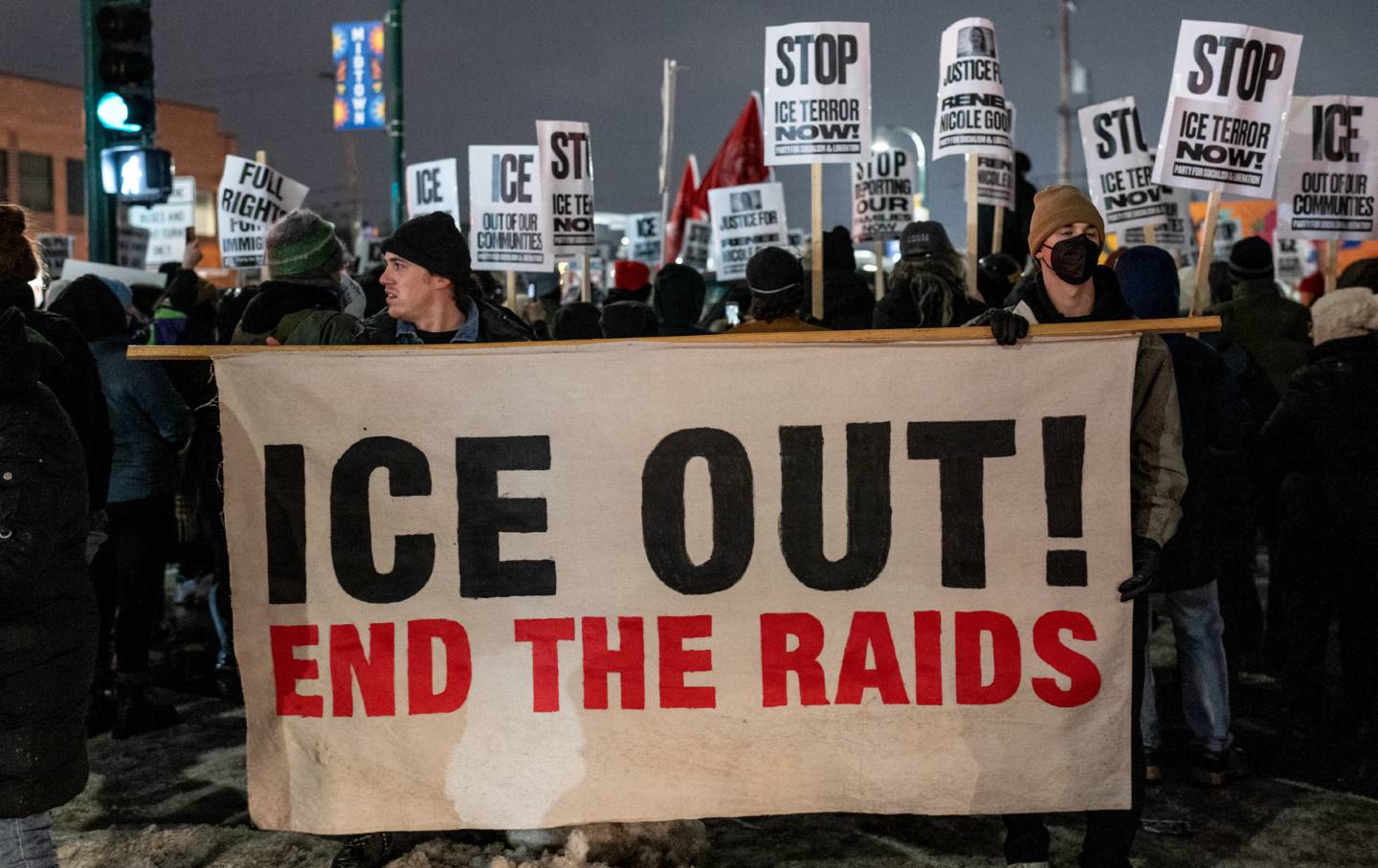“Tough” Border Policies Don’t Work. It’s Time Harris and Trump Accepted That.
Both parties are competing to see who can keep propping up the same old failed myths about immigration.

Kamala Harris visits the US-Mexico border with US Border Patrol Tucson sector chief John Modlin (R) in Douglas, Arizona, on September 27, 2024.
(Rebecca Noble / AFP via Getty Images)Vice President Kamala Harris and former president Donald Trump are competing over who can appear tougher on immigration, particularly at the US-Mexico border. Their approach is both unfortunate and mistaken.
During last month’s presidential debate, Harris boasted that she had supported a border bill that would have “put 1,500 more border agents on the border to help those folks who are working there right now over time trying to do their job [and] put more resources to allow us to prosecute transnational criminal organizations for trafficking in guns, drugs and human beings.”
For his part, Trump said, multiple times, “We [are] allowing these millions of people to come through on the southern border,” adding that he would “sign a bill to close up the border.” In response to a question about his proposal for the largest domestic deportation operation in the history of the country using the National Guard, Trump said he would also use “local police.” Trump also used derogatory language (not worth repeating) in describing immigrants.
We have seen this movie before. US presidents from both parties have been implementing “tough,” often deadly, policies at the border for 30 years. They haven’t worked. It’s time for US leaders to acknowledge the folly of policies aimed at deterring immigration and to rethink how borders can be managed in a way that respects human rights.
Starting with the presidency of Bill Clinton, the US government has deliberately used an increasingly punitive and deadly “prevention through deterrence” strategy to dissuade migration to the US-Mexico border. First implemented by the Border Patrol in August 1994, “prevention through deterrence” and its subsequent permutations have aimed to funnel migrants into increasingly life-threatening conditions as a way to dissuade them from crossing the border.
Deterrence policies have included increased prosecutions and incarcerations for minor legal offenses, building border walls, deploying more agents and invasive surveillance technologies, and removing people quickly and without due process. The government has unlawfully blocked people from applying for asylum, separated children from their parents or caregivers, and forced non-Mexicans to wait in Mexico for months while they use a faulty (by the government’s own admission) phone app to schedule an immigration appointment — all while facing abuse and violence from Mexican criminal groups and corrupt local officials.
These policies may lead to a reduction in border crossings for a brief time. We are now seeing a drop in migrant encounters at the US-Mexico border after the Biden administration’s latest asylum ban proclamation and the heightened, often abusive, interdiction efforts of Mexican officials.
But we know from decades of experience that the pendulum eventually swings back, no matter how much pain our policies inflict. That’s largely because deterrence tactics do not address why people are moving, which is often to live together with their family members in the United States or to find a better, safer life for themselves.
And worse, even as the numbers of encounters drop, deaths of migrants appear to be on the rise. Border Patrol’s El Paso Sector officials, for example, reported finding record numbers of human remains in recent months. Instead of dissuading migrants from coming, these policies are pushing them into crossing through the most remote and deadlier parts of the borderlands.
In 2022 (the latest year for which border-wide data is available), Border Patrol documented more than 850 human remains found in the borderlands. Since 1994, Border Patrol has recorded nearly 10,000 human remains, including of women, pregnant people, and children and toddlers. Unfortunately, deterrence efforts at the US-Mexico border contribute to tragic and increasing numbers of deaths and disappearances of people who come to the US in search of safety, to reunite with family members, or to find a better life.
Regardless of who is president, it is time for the United States to pursue a new approach that prevents needless deaths and is solidly grounded in international human rights and refugee standards, including policies that respect, at a minimum, the human right to life and family unity.
For a fraction of the billions of taxpayer dollars spent on hardening the border, the US government could invest instead in a rights-respecting border management process that brings governmental and nongovernmental entities together to establish reception centers at ports of entry staffed by asylum officers and immigration judges, health professionals, trauma counselors, child welfare specialist, and other humanitarian services providers. Congress should also expand migration pathways that embrace the complex and multicausal reality of people’s movements.
Popular
“swipe left below to view more authors”Swipe →And, US aspirants for political office should also change their rhetoric and talk instead about how immigrants make enormous contributions to the United States, including by strengthening the economy, providing health care, and broadening innovative and productive industries.
By doing so, the United States would set an example for other countries to follow.
More from The Nation

Abolish ICE or GTFO Abolish ICE or GTFO
In this week’s Elie v. US, The Nation’s justice correspondent makes the case to get rid of ICE, explores George Conway’s congressional campaign—and shares his New Year’s resolutio...

Pretty Please Pretty Please
Graffiti near Union Square, New York City.
OppArt / Anonymous and Peter Kuper

The Ugly Beast of American Authoritarianism The Ugly Beast of American Authoritarianism
Might is right is the philosophy behind the Trump administration’s decision to kidnap Nicolás Maduro.


Jews for a Free Palestine Jews for a Free Palestine
Being anti-genocide isn’t antisemitic.



